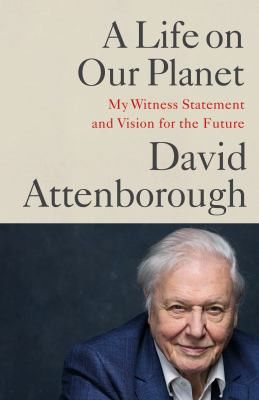Bill Gates has spent a decade investigating the causes and effects of climate change. With the help of experts in the fields of physics, chemistry, biology, engineering, political science, and finance, he has focused on what must be done in order to stop the planet's slide toward certain environmental disaster. In this book, he not only explains why we need to work toward net-zero emissions of greenhouse gases, but also details what we need to do to achieve this profoundly important goal. He gives us a clear-eyed description of the challenges we face. Drawing on his understanding of innovation and what it takes to get new ideas into the market, he describes the areas in which technology is already helping to reduce emissions, where and how the current technology can be made to function more effectively,
While you are waiting to read How to avoid a climate disaster, check out these other titles on climate change and sustainable solutions for the future.
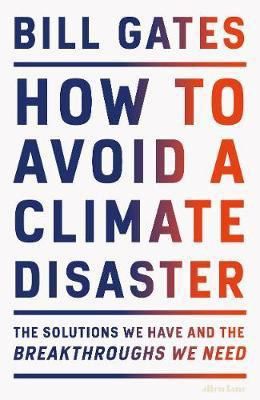
The Climate Cure : Tim Flannery
In The Climate Cure renowned climate scientist Tim Flannery takes aim at those responsible for the campaign of obfuscation and denial that has already cost so many Australian lives and held back action on climate change. Flannery demands a new approach, based on the nation's response to COVID-19, that will lead to effective government policies. The Climate Cure is an action plan for our future. We face a fork in the road, and must decide now between catastrophe and survival.
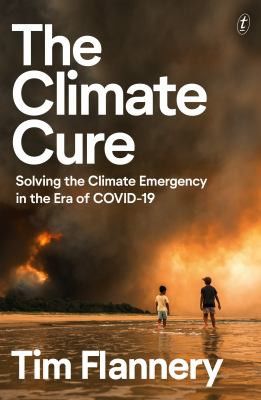
Your life your planet : what you can do right now : Geoff Ebbs
Unless we take personal responsibility and look after ourselves, each other and the natural world in a balanced and harmonious manner, the situation has little chance of improving. In order to tackle issues such as carbon emissions, our fossil fuel dependency, plastic and other pollution, and species loss, we need to actively engage with the people and the world around us and address the habitual way we seek convenience and ease. In doing this this, we will not only reduce our environmental footprint, but we will take the first steps toward Cat Greens ideal of converting our homes from centres of rampant consumption to hubs of environmentally friendly production
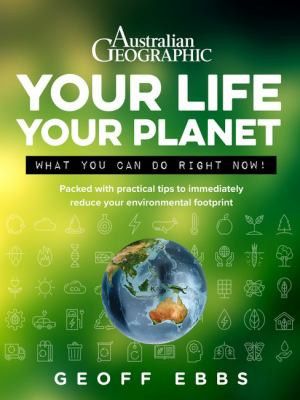
Body Count : Paddy Manning
In Body Count ,Manning has interviewed scientists to explore the link between catastrophe and climate change and asks how - indeed, whether - we can better prepare ourselves in the future.
These are stories of humans at their most vulnerable, and also often at their best. In extremis, people often act to save their loved ones above themselves. As Body Count shows, we are now all in extremis, and it is time to act. Respected journalist Paddy Manning tells these stories of tragedy and loss, heroism and resilience, in a book that is both monument and warning. Winner of the Victorian Premier's Literary Award 2021 for non-fiction.
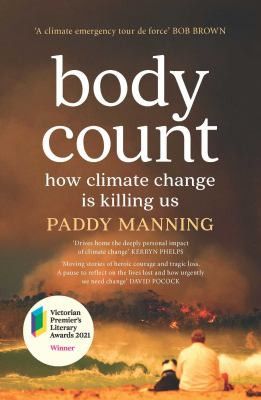
Sand Talk: How indigenous thinking can save the world :Tyson Yunkaporta
What happens when global systems are viewed from an Indigenous perspective? How does it affect the way we see history, money, power and learning? Could it change the world? This remarkable book is about everything from echidnas to evolution, cosmology to cooking, sex and science and spirits to Schrodinger's cat. Tyson Yunkaporta looks at global systems from an Indigenous perspective. He asks how contemporary life diverges from the pattern of creation. How does this affect us? How can we do things differently? Sand Talk provides a template for living. . It's about finding different ways to look at things. Most of all it's about Indigenous thinking, and how it can save the world.
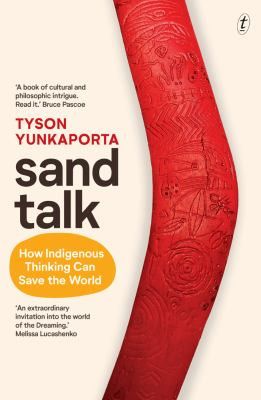
A life on our planet : my witness statement and vision for the future : David Attenborough
A legacy-defining book from Sir David Attenborough, reflecting on his life's work, the dramatic changes to the planet he has witnessed, and what we can do to make a better future. See the world. Then make it better. 'I am 93. I've had an extraordinary life. It's only now that I appreciate how extraordinary. As a young man, I felt I was out there in the wild, experiencing the untouched natural world - but it was an illusion. The tragedy of our time has been happening all around us, barely noticeable from day to day - the loss of our planet's wild places, its biodiversity. It is the story of how we came to make this, our greatest mistake - and how, if we act now, we can yet put it right.
Robyn
